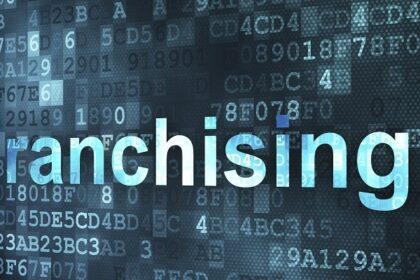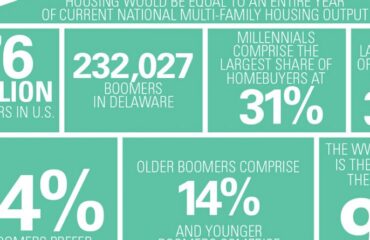
In today’s fast changing and often volatile economic climate, it’s easy to feel insecure, even if you have a great job. That’s one of the motivating forces behind the growing number of startups all across America.
If you’re like many, you feel the need to build a business of your own, perhaps for reasons of economic security or maybe because you’re simply obsessed with the idea of being your own boss and running your own company.
No matter what’s motivating you, the idea of buying into a franchise has likely crossed your mind. Is this really a viable option for you? Will it meet or exceed all your expectations? Or is this the wrong path for you to venture down altogether?
The Positive Aspects Of Buying A Franchise
There are approximately three-quarters of a million franchise outfits in the United States; an obvious indication that this business model is working for people. There are numerous benefits that may offer strong appeal to your individual circumstances:
Brand Recognition
Brand recognition is the driving force behind most sales, but it’s tough to build a name that people trust and recognize. Customer acquisition costs, for example, are slashed significantly, when the customers are dealing with a recognized brand-name. You automatically inherit the value of the brand as a franchisee.
Available Resources
Setting up any new business is tedious, expensive and time-consuming; however, with a franchise, it’s nearly all done for you, with a strategic plan to get you up and running ASAP.
Experience On Tap
Inexperience is a driving force in closing down a lot of startups all over the world. Despite having endless and exceptional ideas about how to develop or improve products and services, the dream is lost during the execution stage. With a franchise, though, you will have years of experience at your fingertips.
Extensive Training
Both for you and employees, the training offered by a franchise is simply outstanding. Because they want each customer to be greeted, served and satisfied in the same way every time, you and your crew should receive the best possible training. Something that would otherwise cost you a great deal of money, which you probably wouldn’t have as a startup.
An Established Business Model
Buying into a franchise means you don’t have to develop your own business model and thereafter, try to fit it into a particular demographic or geographic customer base. Everything about the business is already cemented in stone, leaving you more time and energy to devote to increasing sales and building a solid reputation.
Lowered Risk
More than a third of all retail revenue in the United States comes from franchising, which is quite impressive. On the other hand, the statistics for independently owned startups is not so optimistic.
The Possible Negatives Of Being A Franchisee
Despite the many success stories, there are potential drawbacks to owning a franchise, be they due to the policies of certain franchise corporations or the simple fact that this type of arrangement may not be optimal for you personally. No matter what, it’s vital that you examine all aspects of this commitment, including the negatives:
- Inflated Sales Figures
Unfortunately, the national sales figures for any given franchise are based on averages; therefore, you have no way of knowing if your business will fall on the low or high end of profitability. Additionally, it’s all too easy for the corporation behind a franchise to pad the numbers, in order to entice new investors.
- Inflexibility
While having a pre-made business does present advantages, it also may stifle you in terms of creativity. Because you are contractually bound to abide by all of the franchise’s policies, you may find yourself frustrated – especially if your sales are sluggish. Not being able to provide your own solutions can be very exhausting and discouraging.
- Restrictions In Advertising And Supply Chain
As a franchisee, you may be obliged to contribute funds to the advertising budget of the entire franchise business, which can significantly cut into your own local efforts. Also, because the franchise base demands consistency in all aspects of operations, you will likely be forced to accept the suppliers of their choice, no matter how expensive or insufficient you may find them to be.
- Royalty And Start-Up Costs
Initially buying into a franchise may require emptying your savings account or risking your retirement. Most franchisees spend a small fortune just to open the doors of their new business, with no guarantee of a return on that investment and no money-back clause in the contract. You’ll also face royalty fees with most franchising opportunities, which are usually a flat percentage of your total monthly or quarterly sales and this can be a major burden, especially when you’re first starting out.
- Sudden Termination Of Franchise Ownership
Because your new business is an extension of someone else’s business, they have the right to terminate your license to operate, basically at their discretion. This can easily leave a franchisee feeling queasy, especially during a sales slump or if they’re otherwise not a shining star for corporate headquarters. Generally, the governing body for franchise operations in the U.S., the Federal Trade Commission, is not quick to offer assistance to franchisees, no matter what the nature of their complaint(s).
Unwelcome Competition
Unfortunately, you could be running a successful franchise in a given area and all of a sudden, someone else is allowed to open an identical business in close proximity to you. The franchise owners, after all, make their money by having as many franchisees as possible; thus, they may not be concerned with somebody new cutting into your hard-earned profits.
- How Do You Decide If Franchising Is Right For You?
The single most important aspect of your decision should be the information you uncover during extensive research of a prospective franchise. How many pros does the company offer that work for you? Are there serious negatives? Contact a prospect prior to making any type of commitment or investment and ask them the hard questions directly. If you are impressed by the answers, make sure that information is clearly spelled out in a written contract, but if you aren’t satisfied with the exchange, continue your search.
There are so many opportunities in franchising that if you do decide the business model is a good fit for you, you should be able to find a suitable partnership. Don’t settle for anything less than total transparency regarding the business arrangement and be sure to run a contract by a qualified attorney before making a financial commitment.
The world of franchising holds many lucrative possibilities, if you enter it with your eyes wide open and a readiness to really work for your success.



